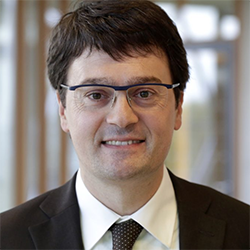The Economics and History of Health Crises
An Interdisciplinary Workshop
Dates: Thursday 26 & Friday 27 May 2022
Venue: Clifton House, Belfast, Northern Ireland
Hosts: Centre for Health Research at the Management School (CHARMS) and Centre for Economic History (QUCEH), Queen's University Belfast
Venue: Clifton House, Belfast, Northern Ireland
Hosts: Centre for Health Research at the Management School (CHARMS) and Centre for Economic History (QUCEH), Queen's University Belfast
Workshop description
The Covid-19 pandemic has led to a vast expansion in academic research output into health crises. But most of this research is conducted by scholars within their disciplinary silos. Discipline-specific language and publishing norms means we are often unaware of relevant research from colleagues in other fields. The aim of the workshop was to foster dialogue between economists, historians and other social scientists who are conducting disciplinary research into the causes, anatomy and consequences of health emergencies, today and in the past.
Academics often struggle to communicate their research findings to policymakers. We intended that this workshop will assist in creating opportunities for translating academic research into formats that may inform actionable policy initiatives. The workshop concluded with a public roundtable discussion, involving both academics and policymakers from Northern Ireland's government.
The workshop was organised jointly by the Centre for Health Research at the Management School (CHARMS) and the Centre for Economic History (QUCEH), both at Queen's University Belfast. This in-person event was held at Clifton House, Belfast's historic poor house, constructed by the Belfast Charitable Society in 1774, and the location of the first trials of inoculation and vaccination in Ireland in 1800.
The Covid-19 pandemic has led to a vast expansion in academic research output into health crises. But most of this research is conducted by scholars within their disciplinary silos. Discipline-specific language and publishing norms means we are often unaware of relevant research from colleagues in other fields. The aim of the workshop was to foster dialogue between economists, historians and other social scientists who are conducting disciplinary research into the causes, anatomy and consequences of health emergencies, today and in the past.
Academics often struggle to communicate their research findings to policymakers. We intended that this workshop will assist in creating opportunities for translating academic research into formats that may inform actionable policy initiatives. The workshop concluded with a public roundtable discussion, involving both academics and policymakers from Northern Ireland's government.
The workshop was organised jointly by the Centre for Health Research at the Management School (CHARMS) and the Centre for Economic History (QUCEH), both at Queen's University Belfast. This in-person event was held at Clifton House, Belfast's historic poor house, constructed by the Belfast Charitable Society in 1774, and the location of the first trials of inoculation and vaccination in Ireland in 1800.
Workshop programme
Download the programme here.
Download the programme here.
Keynote Speakers
|
Guido Alfani
Guido Alfani is Professor of Economic History at Bocconi University, Milan. He is an expert on the history of plagues and epidemics, and the history of famines. His forthcoming article in the Journal of Economic Literature ("Epidemics, Inequality, and Poverty in Preindustrial and Early Industrial Time") looks at the past for insights about how pandemics can affect inequalities in income, wealth, and health. |
|
Erica Charters
Erica Charters is Professor of the Global History of Medicine at the University of Oxford. She is a historian of war, disease, and bodies, particularly in the British and French empires. She currently coordinates a multidisciplinary project funded by the Wellcome Trust which investigates how societies know when an epidemic is over and normal life can resume. Her 2021 article in Centauras ("How Epidemics End", with Kristin Heitman) sets out the aims of this project. |
|
Maarten Lindeboom
Maarten Lindeboom is Professor of Economics at the Vrije Universiteit Amsterdam. He is an applied microeconomist working in the fields of health, labour and ageing. He is currently an editor of the Journal of Health Economics. He has published widely on the long-run impact of exposure to health crises in early childhood, including his 2006 article in the American Economic Review ("Economic Conditions Early in Life and Individual Mortality", with Gerard van den Berg and France Portrait). |



